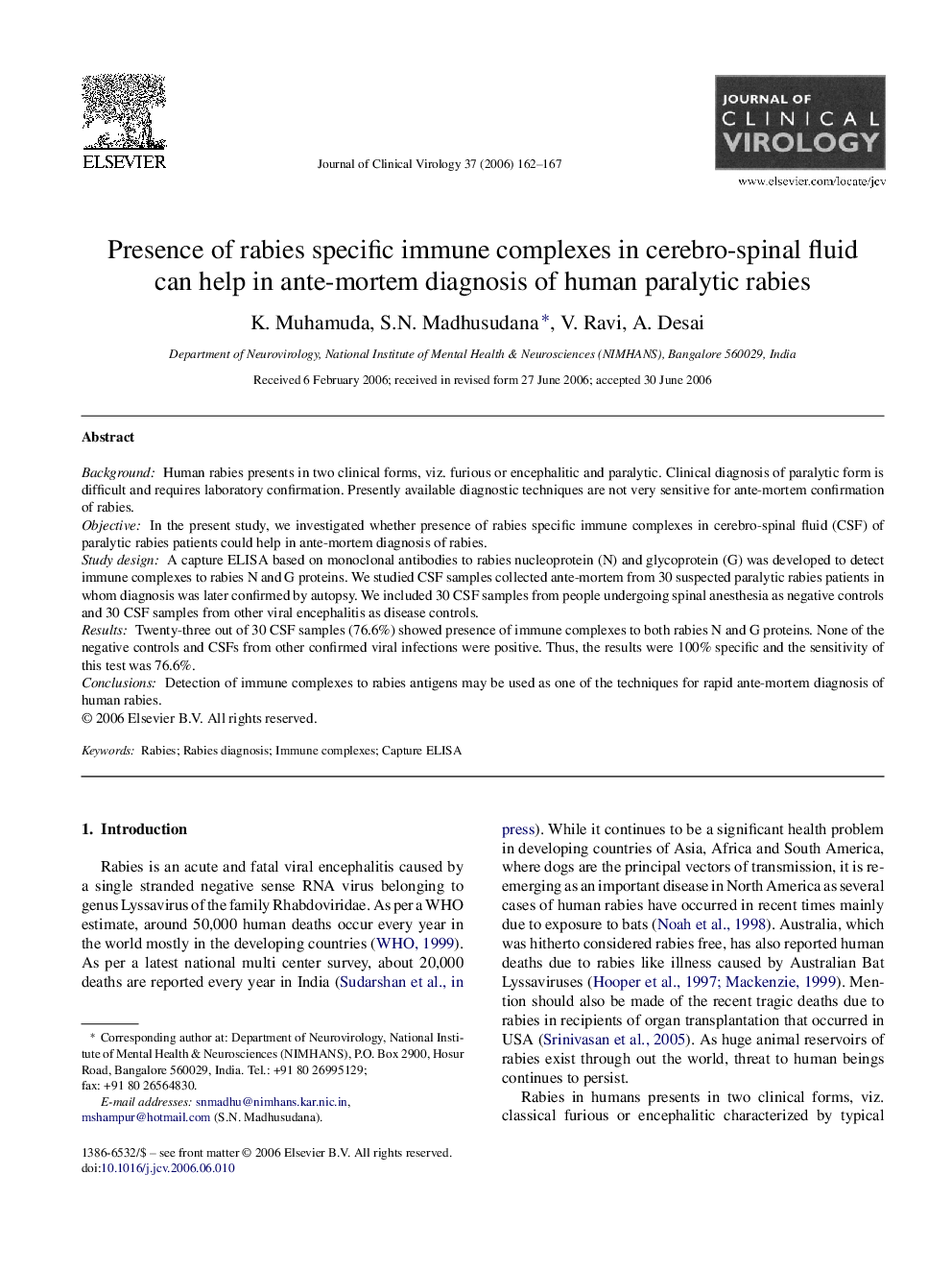| Article ID | Journal | Published Year | Pages | File Type |
|---|---|---|---|---|
| 3370126 | Journal of Clinical Virology | 2006 | 6 Pages |
BackgroundHuman rabies presents in two clinical forms, viz. furious or encephalitic and paralytic. Clinical diagnosis of paralytic form is difficult and requires laboratory confirmation. Presently available diagnostic techniques are not very sensitive for ante-mortem confirmation of rabies.ObjectiveIn the present study, we investigated whether presence of rabies specific immune complexes in cerebro-spinal fluid (CSF) of paralytic rabies patients could help in ante-mortem diagnosis of rabies.Study designA capture ELISA based on monoclonal antibodies to rabies nucleoprotein (N) and glycoprotein (G) was developed to detect immune complexes to rabies N and G proteins. We studied CSF samples collected ante-mortem from 30 suspected paralytic rabies patients in whom diagnosis was later confirmed by autopsy. We included 30 CSF samples from people undergoing spinal anesthesia as negative controls and 30 CSF samples from other viral encephalitis as disease controls.ResultsTwenty-three out of 30 CSF samples (76.6%) showed presence of immune complexes to both rabies N and G proteins. None of the negative controls and CSFs from other confirmed viral infections were positive. Thus, the results were 100% specific and the sensitivity of this test was 76.6%.ConclusionsDetection of immune complexes to rabies antigens may be used as one of the techniques for rapid ante-mortem diagnosis of human rabies.
